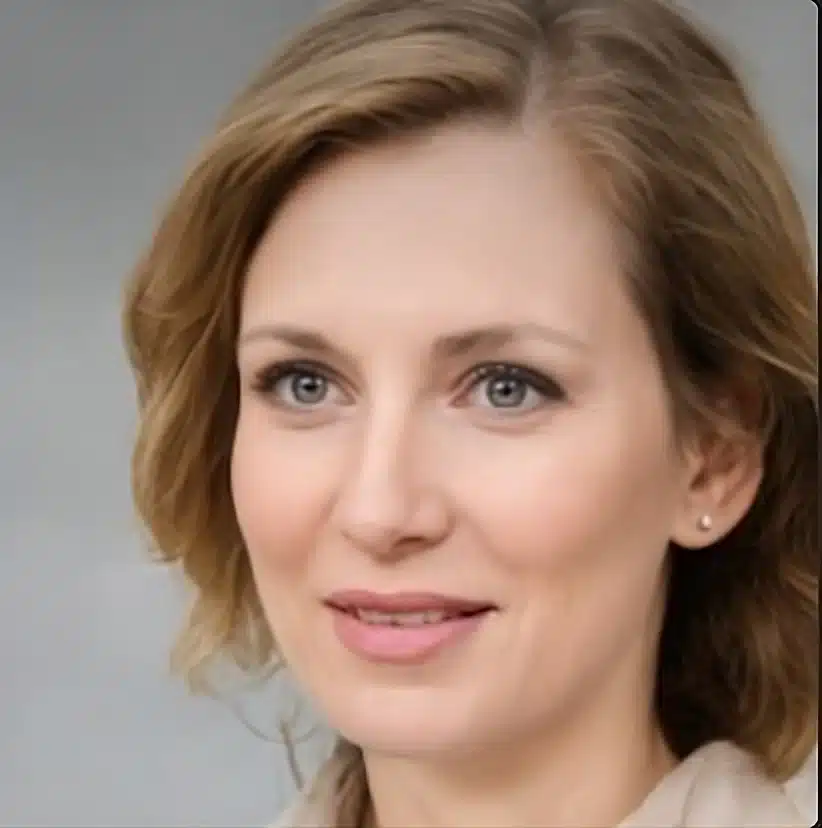Nearly 78% of Americans live paycheck to paycheck. This isn’t just about income levels. It’s about money mindset. Most people follow a broken narrative about wealth. They chase numbers without purpose. They accumulate without direction. Money BetterThisWorld represents a fundamental shift in thinking. It’s not about getting rich quick. It’s about creating lasting transformation through conscious financial philosophy.
This approach transforms money from a source of stress into a tool for freedom. It changes wealth from selfish accumulation to positive impact. Most importantly, it shifts your relationship with money from fear to empowerment. The stakes couldn’t be higher. Your money decisions today shape your reality tomorrow. Every dollar you earn carries the potential for transformation. Not just for you, but for your community and future generations. This isn’t another generic finance article. You’ll discover practical strategies that actually work. Real transformation methods that create measurable results. A complete system for money mindset transformation.
Deconstructing Money’s True Purpose
The Tool vs. Goal Distinction
Money isn’t the destination—it’s the vehicle. This distinction changes everything about how you approach wealth creation. Think of money like electricity. Electricity isn’t valuable by itself. Its value comes from what it powers. Your refrigerator, your lights, your computer. Money works the same way.

Historical societies understood this concept better than we do today. Before consumer culture, people used money to solve specific problems. They bought tools to increase productivity. They invested in relationships that opened opportunities.
Modern society flipped this relationship. We started treating money as the end goal instead of the means. This shift created the anxiety and dysfunction we see today.
Beyond Accumulation: Money as Freedom Creator
True wealth as freedom comes from strategic choices, not random accumulation. Freedom means having options when life changes direction.
Consider Sarah, a teacher who saved $50,000 over five years. When her school district faced budget cuts, she had choices. She could start her own tutoring business. She could relocate to a better district. She could take time to retrain for a new career.
Her colleague Mark spent every paycheck on lifestyle upgrades. When layoffs came, Mark had one option: desperately accept whatever job came first. Sarah had financial freedom. Mark had financial slavery.
Financial empowerment creates time freedom through three mechanisms:
- Passive income streams that work while you sleep
- Emergency funds that eliminate crisis-driven decisions
- Investment growth that compounds over time
The Compound Effect of Money Decisions
Small shifts create massive life changes through compound effects. This isn’t just about investment returns. It applies to every financial choice you make.
Jamie saved $5 daily by making coffee at home instead of buying it. That’s $1,825 per year. Invested at 7% annual return, this becomes $61,000 over twenty years. One small habit created a down payment for a house.
But compound effects work negatively too. Credit card debt at 18% interest doubles every four years. A $5,000 balance becomes $10,000, then $20,000, then $40,000 if you only make minimum payments.
The emotional relationship with money compounds as well. Positive financial decisions build confidence and create momentum. Negative decisions create stress cycles that lead to more poor choices.
The Psychology Behind Money Dysfunction
Inherited Money Beliefs That Sabotage Success
Your money mindset formed before age seven. Most financial dysfunction comes from inherited beliefs, not lack of information.
Common destructive beliefs include:
- “Money is the root of all evil”
- “Rich people are greedy”
- “I don’t deserve wealth”
- “Money changes people”
- “There’s never enough”
These beliefs create self-sabotage patterns. You unconsciously avoid opportunities that might increase your wealth. You feel guilty about financial success. You make decisions that keep you “safely” struggling.
Cultural programming reinforces these patterns. Movies portray wealthy people as villains. Family stories emphasize struggle over success. Society celebrates poverty as noble and wealth as corrupt.
The Scarcity vs. Abundance Spectrum
Financial anxiety stems from scarcity thinking. Scarcity believes there’s never enough money, time, or opportunities. This creates hoarding behaviors and missed opportunities.
Abundance thinking recognizes infinite possibilities for wealth creation. It focuses on creating value rather than protecting what you have. It sees opportunities where scarcity sees threats.
Scarcity thinkers avoid investing because they might lose money. Abundance thinkers invest because they might gain wealth. Scarcity cuts expenses obsessively. Abundance increases income strategically.
The paradox: scarcity thinking actually creates scarcity. Fear-based decisions limit your potential and opportunities. Abundance thinking creates measurable results through expanded possibilities.
Money Emotions: Fear, Shame, and Power
Money triggers powerful emotions that override rational thinking. Financial confidence requires understanding and managing these emotional responses.
Fear manifests as:
- Avoiding financial planning
- Obsessing over market volatility
- Paralysis when making money decisions
- Hoarding cash instead of investing
Shame appears as:
- Hiding financial struggles
- Feeling unworthy of wealth
- Comparing yourself to others
- Avoiding money conversations
Power issues create:
- Using money to control others
- Feeling powerless without money
- Equating net worth with self-worth
- Making financial decisions based on ego
Transform emotional reactions into strategic responses by identifying your triggers. Notice when emotions drive your money decisions. Pause and ask: “What would I do if I felt calm and confident?”
Building an Unshakeable Money Foundation
Core Principle: Values-Driven Financial Decisions
Conscious spending aligns your money with your authentic priorities. Most people spend unconsciously and wonder why they feel unsatisfied.
Values-based budgeting starts with identifying what matters most to you. Is it family time? Travel experiences? Creative freedom? Health and fitness? Making a difference?
Create a spending hierarchy based on your values:
Priority LevelValues CategorySpending ExamplesEssentialHealth, SecurityInsurance, Emergency fund, Nutritious foodImportantGrowth, RelationshipsEducation, Quality time with familyValuableExperiences, ImpactTravel, Charitable givingOptionalConvenience, StatusLatest gadgets, Brand names
This framework eliminates decision fatigue and spending regret. Every purchase decision becomes simple: does this align with my values?
Core Principle: Systems Over Willpower
Building financial habits through systems creates automatic wealth-building behaviors. Willpower fails under stress. Systems work regardless of your mood or motivation.
Effective financial systems include:
Automated Investing
- Automatic transfers to investment accounts
- Dollar-cost averaging into index funds
- Retirement contributions that increase annually
Expense Management
- Separate accounts for different spending categories
- Automatic bill payments to avoid late fees
- Weekly spending reviews to catch problems early
Income Optimization
- Annual salary negotiations with market research
- Side income streams that generate passive revenue
- Skill development that increases earning potential
Core Principle: Strategic Patience
Sustainable financial growth requires understanding compound interest beyond basic mathematics. Most people know the formula but miss the practical implications.
Consider two investors: Alex starts investing $200 monthly at age 22. Beth starts at age 32 but invests $400 monthly. Both earn 8% annually and retire at 65.
Alex invests for 43 years, contributing $103,200 total. Beth invests for 33 years, contributing $158,400 total. Who has more at retirement?
Alex ends with $1.37 million. Beth has $875,000. Starting ten years earlier outweighs doubling the monthly contribution.
This demonstrates why long-term vs short-term thinking matters more than contribution amounts. Time in the market beats timing the market every single time.
The Money BetterThisWorld Assessment
Evaluate your current relationship with money through these diagnostic questions:
Mindset Assessment:
- Do you view money as a tool or a goal?
- Are your financial decisions driven by fear or strategy?
- Do you feel worthy of financial success?
- Can you discuss money without emotional reactions?
Behavior Assessment:
- Do you have automated wealth-building systems?
- Are your expenses aligned with your values?
- Do you invest in your own growth and development?
- Are you building multiple income streams?
Impact Assessment:
- Does your spending create positive ripple effects?
- Are you preparing for future opportunities?
- Do your money choices benefit others beyond yourself?
- Are you building generational wealth?
Rate each area from 1-10. Scores below 7 indicate transformation opportunities.
Advanced Implementation Strategies
Strategy: The Self-Investment Priority System
Self-investment generates disproportionate returns compared to traditional investments. The stock market averages 10% annually. Investing in yourself can create 100% to 1000% returns.
Skills Development ROI:
InvestmentCostPotential ReturnTimeframeProfessional Certification$2,000$10,000 salary increase6-12 monthsPublic Speaking Training$1,500Leadership opportunities3-6 monthsDigital Marketing Skills$500Freelance income $2,000/month2-4 monthsLanguage Learning$300International job opportunities12-18 months
Health investments prevent financial disasters through reduced medical costs and maintained earning capacity. A $2,000 annual gym membership and nutrition coaching can prevent $200,000 in future medical expenses.
Network investments open unexpected opportunities. Attending industry conferences, joining professional associations, and building genuine relationships creates career advancement possibilities that formal education cannot provide.
Strategy: Financial Intelligence Development
Financial literacy goes beyond basic budgeting. It includes understanding economic trends, investment vehicles, tax optimization, and risk management.
Essential knowledge areas most people ignore:
Tax Strategy:
- Understanding marginal vs. effective tax rates
- Maximizing tax-advantaged retirement accounts
- Using tax-loss harvesting to reduce investment taxes
- Timing income and deductions for optimal tax outcomes
Investment Diversification:
- Asset allocation across different investment types
- Geographic diversification for global opportunities
- Time diversification through dollar-cost averaging
- Risk tolerance assessment and adjustment strategies
Insurance Optimization:
- Adequate coverage without over-insuring
- Understanding deductibles and premium relationships
- Life insurance for wealth transfer and tax benefits
- Disability insurance to protect earning capacity
Strategy: Impact-Driven Money Allocation
Money for social good creates unexpected returns through network effects and personal satisfaction. Supporting businesses and causes that align with your values generates positive ripple effects.
Conscious spending examples that create impact:
- Choosing local businesses over large corporations
- Supporting companies with ethical labor practices
- Investing in funds that screen for environmental responsibility
- Buying from businesses owned by underrepresented groups
The unexpected returns from ethical money choices include:
- Stronger local communities that increase property values
- Business relationships that create opportunities
- Personal fulfillment that increases motivation and productivity
- Network connections with like-minded individuals
Strategy: Long-Term Vision Implementation
Legacy wealth thinking extends beyond your lifetime. This perspective changes how you approach every financial decision.
Create detailed financial scenarios for 10, 20, and 50-year timeframes:
10-Year Vision:
- Specific net worth targets with monthly progress metrics
- Career advancement goals with skill development plans
- Investment portfolio growth with risk management strategies
20-Year Vision:
- Financial independence calculations with multiple scenarios
- Real estate investments for passive income generation
- Business ownership or equity participation goals
50-Year Vision:
- Generational wealth transfer strategies
- Philanthropic impact goals and funding mechanisms
- Family financial education and empowerment plans
Reverse-engineer daily habits from these future goals. If you want $2 million in 20 years, you need to invest approximately $3,000 monthly at 8% returns. This requires earning enough to support both living expenses and investment contributions.
Navigating Money’s Emotional Landscape
Identifying Your Money Personality Type
Understanding your money mindset type helps optimize your natural tendencies while addressing blind spots.
The Spender Profile:
- Strengths: Enjoys life, supports local economy, builds relationships through generosity
- Challenges: Impulse purchases, inadequate savings, retirement planning difficulties
- Optimization: Automatic savings before spending opportunities, value-based budgeting
The Saver Profile:
- Strengths: Emergency preparedness, financial security, disciplined spending
- Challenges: Over-conservative investing, missing growth opportunities, lifestyle restrictions
- Optimization: Graduated risk tolerance, regular investment increases, experience budgeting
The Investor Profile:
- Strengths: Long-term thinking, wealth accumulation, economic understanding
- Challenges: Over-focus on returns, neglecting current needs, analysis paralysis
- Optimization: Balanced portfolio approach, automatic rebalancing, lifestyle funding
The Avoider Profile:
- Strengths: Non-materialistic values, focus on relationships, reduced money stress
- Challenges: Financial vulnerability, missed opportunities, inadequate planning
- Optimization: Simple automated systems, basic education, gradual engagement
Transforming Money Stress into Money Confidence
Financial anxiety decreases through knowledge, systems, and gradual exposure to money decisions. Confidence builds through small successes that create momentum.
Practical techniques for financial anxiety:
The 5-Minute Money Rule: Spend exactly five minutes daily reviewing your financial situation. Check account balances, review recent transactions, or read one financial article. This builds familiarity without overwhelm.
The $10 Investment Challenge:
Start investing with tiny amounts to build comfort with market volatility. Invest $10 weekly in a broad market index fund. Watch it grow and decline without emotional reactions.
Financial Scenario Planning: Create written plans for different financial situations. What would you do if you lost your job? Received a windfall? Had a medical emergency? Plans reduce anxiety by providing direction during uncertainty.
Money Conversations That Strengthen Relationships
Money and happiness in relationships require open, honest communication about financial values and goals. Most relationship conflicts involve money disagreements at their core.
Partner Financial Alignment:
Monthly money meetings prevent conflicts and build shared vision:
- Review monthly expenses and income together
- Discuss upcoming financial decisions before making them
- Celebrate financial wins and learn from mistakes together
- Adjust financial plans based on changing life circumstances
Teaching Children Healthy Money Mindsets:
- Model conscious spending decisions with explanations
- Provide earning opportunities through chores and projects
- Match their savings to encourage delayed gratification
- Involve them in charitable giving and community support
Family Financial Boundaries:
- Clearly communicate what financial support you can and cannot provide
- Distinguish between helping and enabling financial dependence
- Teach family members financial skills instead of just giving money
- Protect your own financial security while supporting others appropriately
Future-Proofing Your Financial Life
Adapting to Economic Evolution
Entrepreneurship and adaptability become increasingly important as traditional employment becomes less predictable. Technology disrupts entire industries within decades.
Building recession-resistant financial plans requires diversification across:
Income Sources:
- Primary employment with growth potential
- Side businesses that could scale to full-time income
- Investment income from dividends and interest
- Royalties from intellectual property or creative work
Skill Development:
- Technology skills that remain relevant across industries
- Leadership and communication abilities that transfer between roles
- Creative problem-solving capabilities that increase with experience
- Relationship-building skills that create opportunities regardless of economic conditions
Geographic Flexibility:
- Remote work capabilities that expand job opportunities
- Investment properties in different markets
- International diversification for currency and political risk
- Network connections across multiple regions
The Generational Wealth Perspective
Collective progress happens when individuals build wealth that benefits future generations. This perspective changes how you approach every financial decision.
Creating systems that benefit future generations:
Educational Investments:
- 529 college savings plans that grow tax-free
- Family libraries and learning resources
- Mentorship relationships and professional networks
- Financial education that breaks cycles of financial dysfunction
Asset Accumulation:
- Real estate that appreciates and generates income
- Business ownership that creates ongoing value
- Investment portfolios that compound across decades
- Intellectual property that generates royalties
Values Transfer:
- Family mission statements about money and values
- Regular discussions about financial responsibility and opportunity
- Modeling ethical wealth creation and philanthropic behavior
- Creating opportunities for younger family members to learn and contribute
Real-World Transformation Stories
Maria’s Self-Investment Success: Maria worked as a customer service representative earning $35,000 annually. She invested $3,000 in coding bootcamp training and spent six months building programming skills. Within one year, she landed a software developer position earning $75,000. Her investment generated a 1,300% return in the first year alone.
David’s Values-Based Transformation:
David earned $120,000 but felt constantly stressed about money. He discovered his spending didn’t align with his values of family time and experiences. He eliminated status purchases and redirected money toward family activities and travel. His stress decreased while his satisfaction increased, despite spending the same total amount.
Jennifer’s Long-term Vision Implementation: Jennifer started investing $200 monthly at age 25 while earning $40,000 annually. Friends criticized her for “wasting” money instead of enjoying it. By age 45, her investments grew to $380,000. Early retirement became possible because of decisions her peers couldn’t understand.
The Johnson Family’s Generational Impact: The Johnsons focused on building generational wealth through real estate investments and business ownership. They involved their children in property management and business decisions. By the time their children reached adulthood, the family business provided college funding and career opportunities that eliminated student debt and accelerated wealth building for the next generation.
Your 90-Day Money BetterThisWorld Action Plan
Days 1-30: Foundation Building
Week 1: Assessment and Awareness
- Complete the Money BetterThisWorld assessment
- Track every expense for seven days without judgment
- Identify your money personality type and inherited money beliefs
- Write down your top five life values
Week 2: System Creation
- Open separate savings accounts for different goals
- Set up automatic transfers to savings and investment accounts
- Create a simple budgeting system aligned with your values
- Research one new investment or financial concept daily
Week 3: Mindset Work
- Practice the 5-minute money rule daily
- Start the $10 investment challenge
- Have one honest money conversation with your partner or family
- Read one financial success story for inspiration
Week 4: Planning
- Write your 10-year financial vision with specific goals
- Create emergency fund targets and contribution plans
- Research one skill development opportunity
- Join one financial community or online group
Days 31-60: Momentum Creation
Week 5-6: Income Optimization
- Research salary ranges for your position and location
- Update your resume and LinkedIn profile
- Network with three professionals in your industry
- Start one small side income project
Week 7-8: Investment Education
- Open investment accounts if needed
- Start regular investment contributions, even if small
- Learn about different asset classes and diversification
- Review and optimize any existing investments
Days 61-90: Integration and Optimization
Week 9-10: Advanced Strategies
- Increase automation and optimize tax strategies
- Research real estate or business investment opportunities
- Create systems for tracking net worth growth
- Plan larger self-investment projects for the coming year
Week 11-12: Long-term Integration
- Establish monthly financial review and planning sessions
- Create accountability partnerships or join investment clubs
- Set up annual financial goals and quarterly check-ins
- Begin sharing your financial philosophy with others who might benefit
Your Money Evolution Starts Now
Money BetterThisWorld transforms your relationship with wealth from scarcity and stress to abundance and impact. This isn’t just about accumulating more money. It’s about creating a life where your financial choices align with your deepest values and highest aspirations.

The ripple effects extend far beyond your bank account. When you develop financial confidence and sustainable financial growth, you model possibility for others. Your family learns that wealth creation is achievable and ethical. Your community benefits from your conscious spending and support.
Most importantly, you break cycles of financial dysfunction that may have persisted for generations. You create legacy wealth not just through accumulation, but through wisdom and values that your children and their children can build upon.
Every day you delay these changes costs compound growth and opportunity. But every day you implement these principles creates momentum that accelerates your transformation.
Your money mindset transformation begins with the next financial decision you make. Choose to see money as a tool for creating the life you want. Choose to invest in yourself and your future. Choose to use your wealth for positive impact that extends beyond your own needs.
The world needs people who understand that money is a force for good when used consciously and strategically. Your transformation contributes to collective progress that benefits everyone.
Start today. Your future self will thank you.

